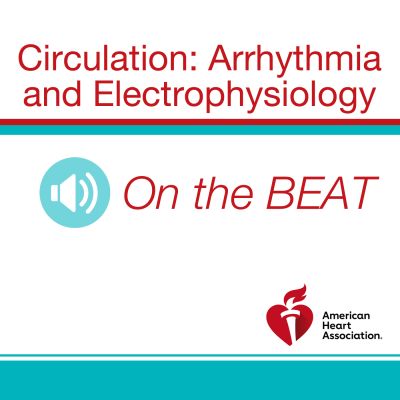Each podcast will include key highlights from the journal's current issue and a report on new research published in the field of arrhythmia and electrophysiology.
http://circep.libsyn.com/podcast
Circulation: Arrhythmia and Electrophysiology April 2020 Issue
Paul J. Wang:
Welcome to the monthly podcast On the Beat, for Circulation: Arrhythmia and Electrophysiology. I'm Dr. Paul Wang, Editor-in-Chief, with some of the key highlights from this month's issue.
In our first paper, David Okada and associates assess the ability of a novel machine learning approach for quantifying 3D spatial complexity of gray scale patterns on late gadolinium-enhanced cardiac magnetic resonance images to predict ventricular arrhythmias in patients with ischemic cardiomyopathy.
They examined 122 consecutive ischemic cardiomyopathy patients with left ventricular ejection fraction of 35%, without prior history of reentrant ventricular arrhythmias. These patients underwent late gadolinium-enhanced cardiac magnetic resonance imaging. From raw gray scale data, the authors generated graphs encoding the 3D geometry of the left ventricle. They then assess the global regularity of signal intensity patterns using Fourier-like analysis and generated a substrate spatial complexity profile for each patient. A machine learning statistical algorithm was employed to discern which substrate spatial complexity profiles correlated with ventricular arrhythmic events. That is appropriate ICD firings and arrhythmic sudden cardiac death.
At five years of follow-up from the statistical machine learning results, a complexity score ranging from zero to one was calculated for each patient that was tested using multivariate Cox regression models. At five years of follow-up, 40 patients had ventricular arrhythmia events. The machine learning algorithm classified with overall 81% accuracy and correctly classified 86% of those without ventricular arrhythmia. Overall negative predictive value was 91%. Average complexity score was significantly higher in patients with ventricular arrhythmia events versus those without P
